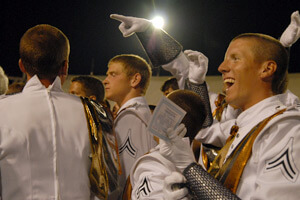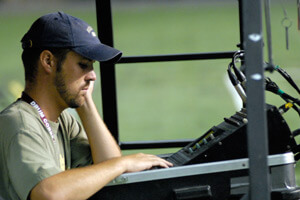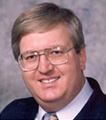On Jan. 22-23, instructors and directors of the voting membership of Drum Corps International will meet in Indianapolis to discuss eight new rule proposals as part of the annual DCI winter business meetings. DCI.org columnist Michael Boo breaks down each of the items that will be considered and gives his insight and opinions on how passage of each rule might affect the direction of the drum corps activity.



Rules Change Overview
The DCI rules change process is an annual affair that kicks off each summer when proposal forms are distributed to the corps and judges. Once any submitted proposals are received by the Rules Change Committee in the fall, they are sent out to judges, directors and instructional staff members for review. Conference calls are convened in mid-November where instructors—representing the individual captions of their specific corps—discuss the proposals, ask questions, offer their opinions and finally take a poll to guage whether or not they think the proposal should be passed. The Judges Advisory Committee also has their own conference call to discuss and share their thoughts. At the annual winter DCI business meetings (Jan. 22-23, 2010 in Indianapolis) instructors meet in person in caucus sessions to further discuss the proposals. Staff members from each eligible corps (World Class member corps and the previous season's Open Class finalists) are polled for a recommendation on whether or not the proposal should be passed along to the full membership to debate, discuss and eventually vote on in the final round of the rules change process. Each of the proposals that are passed in the membership meeting will become part of the DCI rule book, depending on implementation dates that are agreed upon by the voting members.2010 Proposals
Eight proposals have been submitted for 2010. Part I of this series will look at two proposals to change the age limit for member eligibility and placement of corps' sound engineers during competitions. Part II will look at two proposals that involve the period of time between when a corps first enters the field and when judging commences. Part III will address four proposals regarding changes in how corps are judged.Part I
George Hopkins of the Cadets submitted five of the eight proposals currently on the table for 2010. Over the years, Hopkins has been a one-person think tank of new ideas and possibilities; and quite frankly, without his input, we often wouldn't have much of anything at all to discuss when the rules process comes around. This first proposal comes from Hopkins, and is almost identical to an extended age-limit proposal he submitted back in 2008. Age Requirements (for 2011 implementation).
Phantom Regiment 'age-outs' celebrate in 2008.

A staff member monitors the mixing board from the field.



